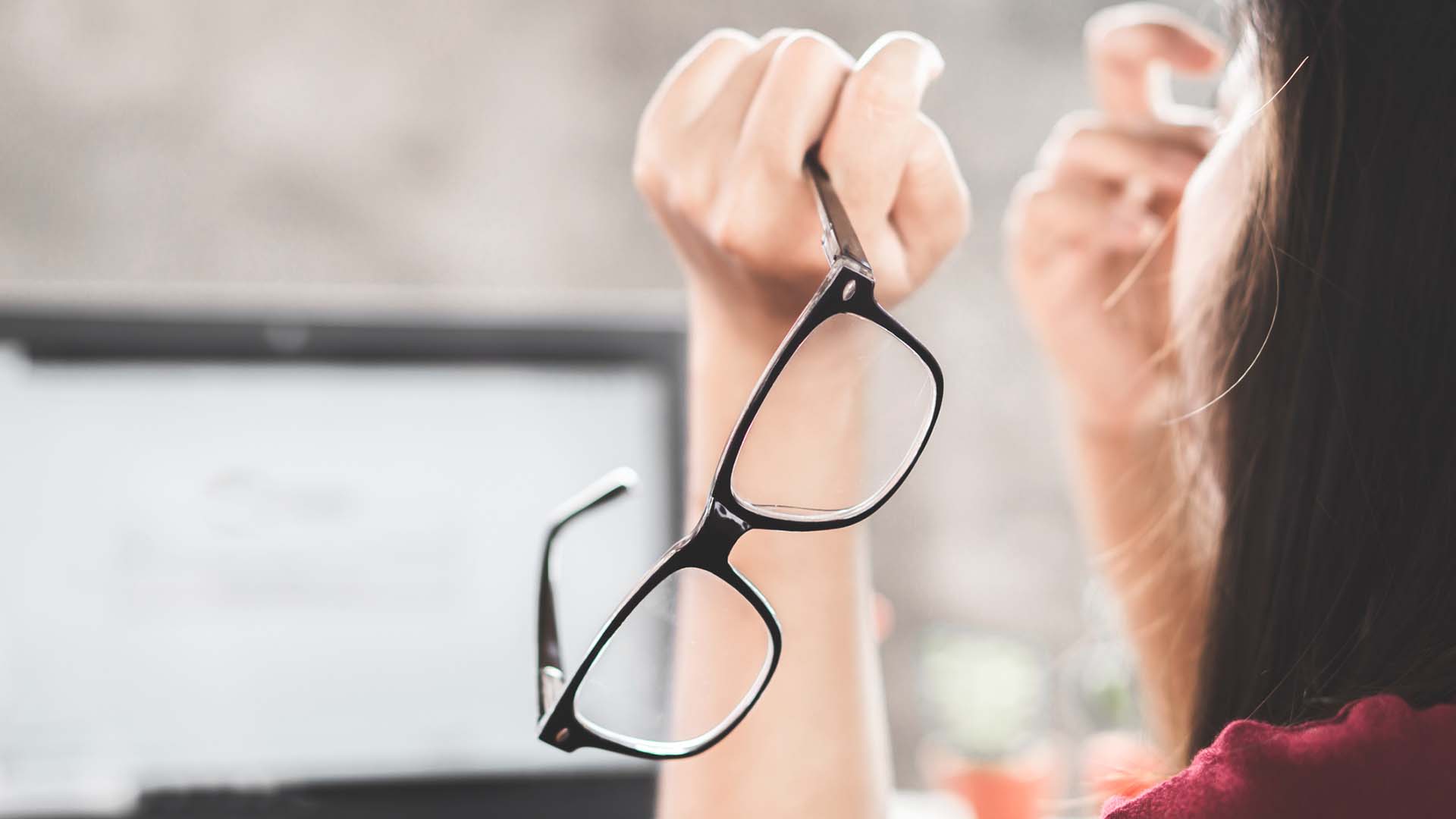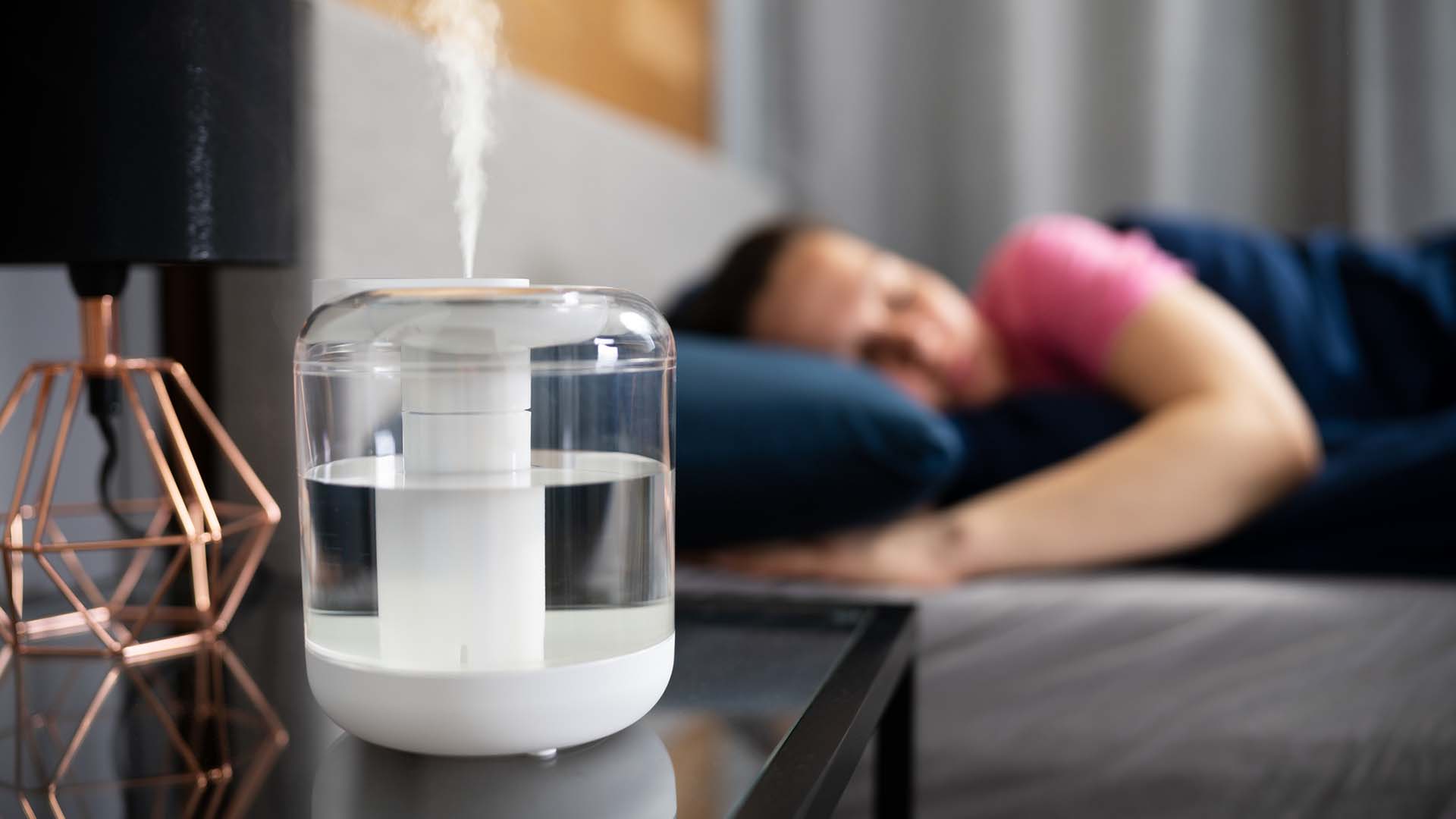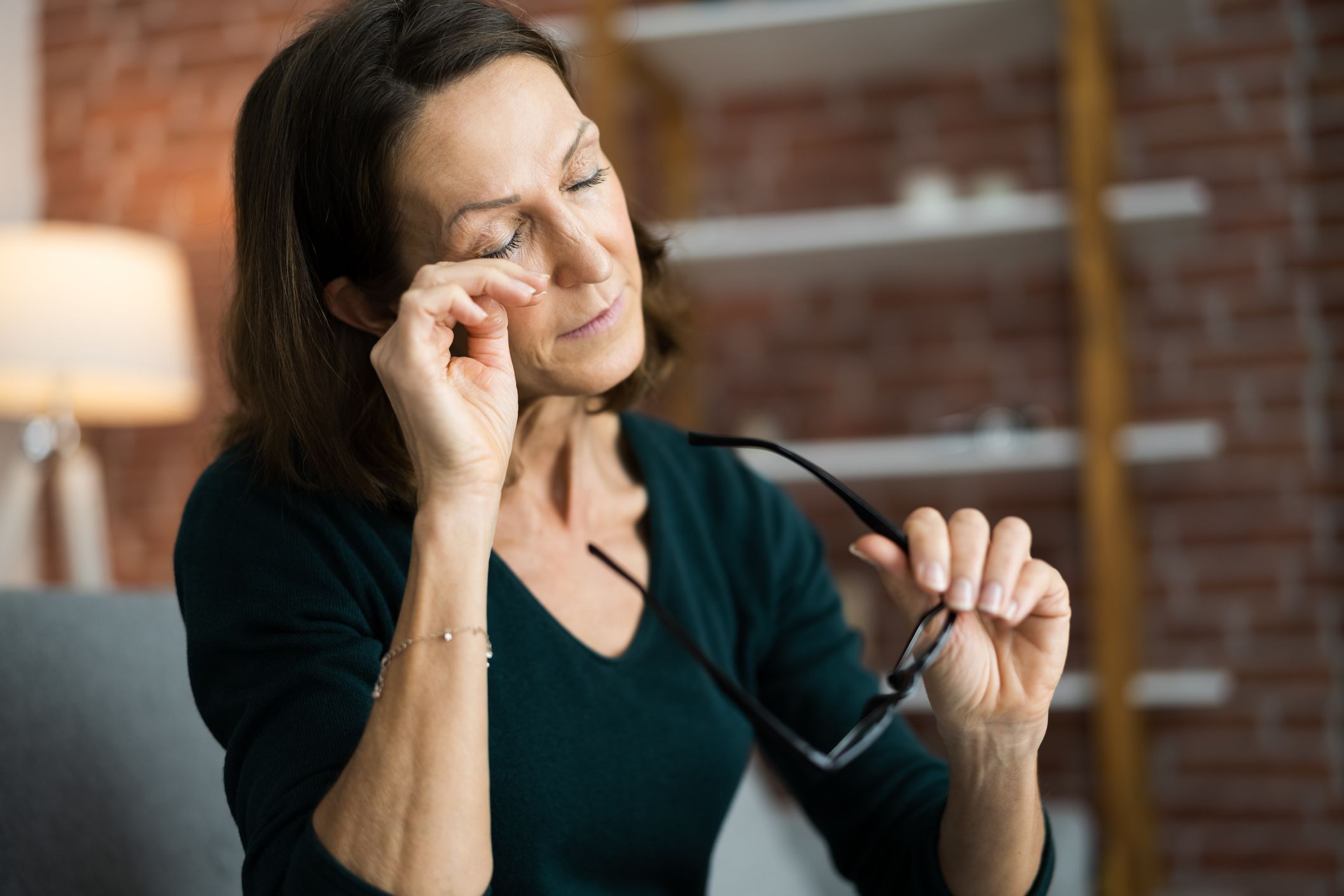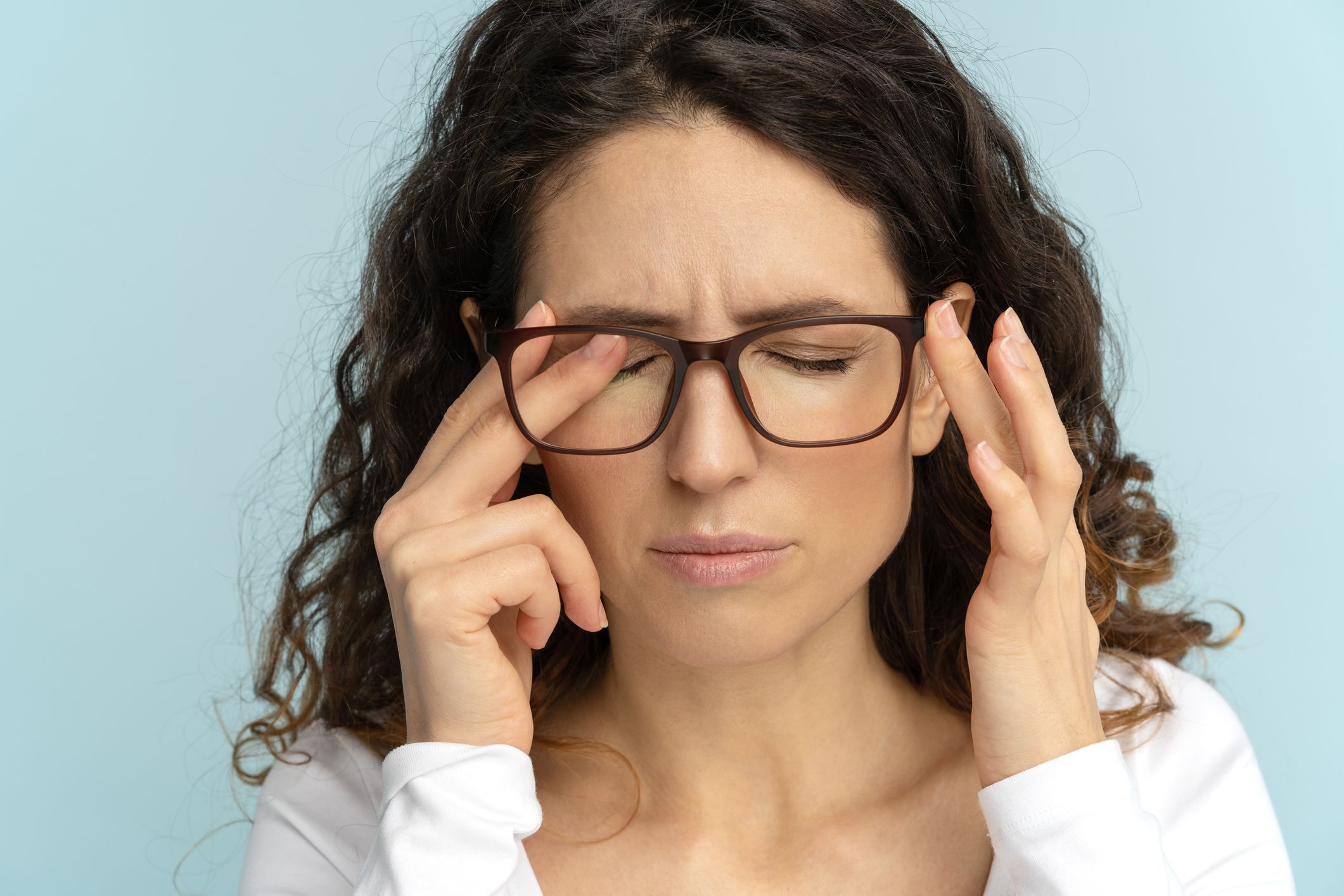Symptoms of dry eye disease (also known as dry eye syndrome) are one of the most common reasons that people visit an eye doctor.
Dry eye disease is a chronic condition where the eyes don’t produce enough tears, or the tears the eyes do produce do not work well. The lack of tears or properly working tears can cause your eyes to sting or burn or may cause a scratchy sensation. You may become sensitive to light, have blurry vision, or have red eyes.
Dry eye disease can affect anyone, but you are more likely to have dry eye disease if you are over the age of 50, are female, if you take certain medications, or if you have certain other health conditions.
Flares or flare-ups can also occur. These are episodes where symptoms get noticeably worse and cells in the eyes become inflamed. Flares often occur in response to a trigger. Common triggers include windy or dry weather, pollen, wearing contact lenses, and spending too much time on computers or phones.
Stress is another possible trigger. Here, we look at how stress might affect dry eyes, and how dry eyes might cause stress.
Can stress trigger dry eye flares?
Some studies have shown that stress caused by depression and anxiety may be related to dry eye disease flares, most likely because stress can cause changes in behavior and even physiology.
Factors such as losing sleep, working in a dry environment, working nights, and using a computer for long periods of time can also play into how stress can affect dry eye disease. High stress can cause anxiety—which can affect your ability to manage pain and even lower your threshold for pain.
Dry eye disease is also an inflammatory condition. Flares not only involve an exacerbation of symptoms, but also a prolonged period of inflammation in the cells that make up the eyes. Stress, especially stress that lasts for long periods of time (called chronic stress) promotes inflammation throughout the body. Stress contributes to inflammation, and this is thought to be a contributing factor to many diseases.
Can dry eye disease trigger stress?
In a word, yes. The symptoms of dry eye disease—itchiness, redness and irritation, blurred vision, and pain—can result in increased stress levels. Trying to get through your day when your eyes hurt can be challenging.
The physical discomfort that comes with dry eye disease may make it difficult to sleep at night and focus during the day, especially if you wear contacts and spend a lot of time at a computer.
Getting the proper treatment can help alleviate symptoms. Treatment typically involves artificial tears in the form of eye drops or ointments, either by prescription or over the counter (though even over-the-counter medications should also be taken under the guidance of a healthcare provider). There is also a short-term corticosteroid that can be prescribed to treat dry eye flares.
In addition to medication, talk to your healthcare provider about what you can do on a day-to-day basis to reduce flares. Figure out what environmental triggers may contribute to symptoms and take steps to avoid them.
Also take steps to reduce stress in your life. Make time to do things you enjoy, spend time with loved ones, and give yourself time to relax.






